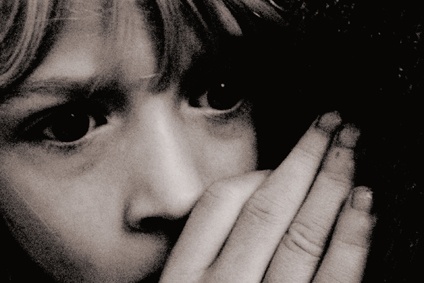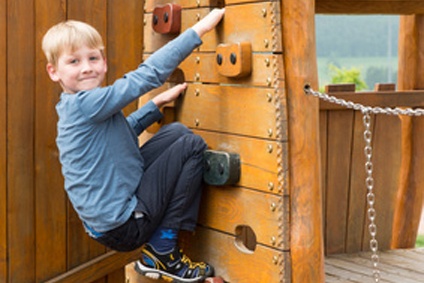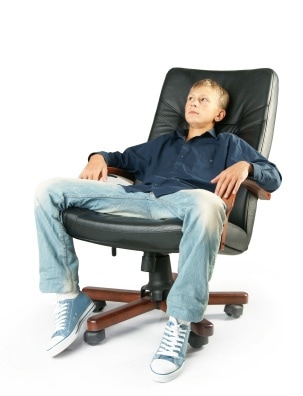
Table of Contents
- Hypnotherapy for children helps change thoughts, feelings And behaviours…
- We have a plan…
- Using hypnotherapy for children
- Children dealing with “life”
- How does hypnotherapy work with children?
- Can Hypnotherapy Be Used on Children?
- What Can Parents Expect?
- Choosing the Right Hypnotherapist for Your Child
- Hypnosis and hypnotherapy for children
Hypnotherapy for children helps change thoughts, feelings And behaviours…
We have a plan…

Find The Problem

Establish A New Behaviour

Make New Behaviour Automatic
Hypnotherapy works amazingly well for children and we can help them to deal with over 100 issues. Our clinic is one of the foremost hypnotherapy clinics specialising with children. We offer a fast and effective treatment with virtually no waiting list. Most problems are resolved in just a few sessions.
Call for a chat or to make an appointment.
A child’s life is full of discovery and of learning. But that discovery and learning can also be very stressful for children. Parents often forget this. While the parents are busy taking care of life’s events, they can sometimes lose sight of the effect that those events can have on their children. That is of course until an issue arises with the child.
Paediatric hypnotherapy for children is one of the most effective therapies, transforming children’s lives through visualisation, hypnosis and other imaginative methods. Hypnosis is rewarding, fast and unique.
Helping children with hypnotherapy
We use hypnotherapy for children to help a wide range of problems :-
- Bedwetting (Enuresis)
- Nail biting
- Insomnia
- Divorce
- Hyperactivity
- Concentration issues
- Phobias
- Depression
- Anxiety
- Anger management
- Getting on with siblings
- Problems with new partners
- Exam nerves
- Eating issues
- Confidence
- Dyslexia
- Allergies
- Asthma
- Athletic ability
- Attitudes
- Compulsive behaviour
- Creativity enhancement
- Physical coordination
- Fear of medical people
- Friendlessness
- Grief and loss
- Headaches
- Illness
- Insecurity and lack of confidence
- Learning problems
- Low self-esteem
- Memory problems
- Nervousness and nervous habits
- Nightmares and sleepwalking
- Pain
- Performance anxiety
- School problems
- Shyness
- Sleep disorders
- Speech difficulties
- Stealing
- Stress
- Suicidal thoughts
- Thumb-sucking
- Uncontrollable anger
- Vandalism
- Weight issues
Using hypnotherapy for children
When using hypnotherapy for children it is often not necessary to explain in detail to children about “hypnosis”. It may simply be explained that they will be having a really relaxed and quiet time in which they use their imaginations to resolve their problems. It is important that the child would like to change the problem behaviour or issue themselves.
Whilst treating a particular childhood problem, the therapist is often able to introduce other positive affirmations to the child. For example, being more relaxed, having more energy, feeling confident, feeling happy, liking themselves better, remembering more easily or reading faster. Children are very suggestible and respond well to these types of therapy. During our hypnotherapy for children programme, a parent (or guardian) is present at all times during each consultation.

One of the reasons that hypnotherapy for children can be such a good choice is that children make good use of their imaginations. Their therapist will have little difficulty in using this ability to help your child deal with the issue that is troubling them. The treatment might include using stories, adventures, meeting a hero or even character from a favourite TV programme who advises you what to do, and these are all ideas that are easily accepted by young children. Even an older child can often be open to using their imagination, but as they are already more sophisticated in their thinking, we would format their treatment accordingly.
When we are using hypnotherapy for children we often find that participation of the parent in this therapeutic process is important. A parent’s anxiety about a particular behaviour can often make change more difficult for the child.
Our paediatric hypnotherapist is CRB cleared and has special paediatric training awarded, by the Canadian Institute of Hypnotism, which is important when using hypnotherapy for children.
Children dealing with “life”
Children have to deal with change, loss, bullying, violence, criticism, low self-esteem, and their own bodies as they move through rapid growth periods over short periods of time. There are many tasks they have to overcome like making new friends, handling bullies, unfamiliar school work, education, sport and all this time trying to “belong”. Sometimes the comparison to others can make feelings of inadequacy, low self-esteem or even depression rise to the surface.
Children, just like adults, show their reaction to stress, change, violence, low self-esteem, grief and loss in many different ways. Their marks in school may begin to drop. The child may become forgetful, distracted, angry, irritable and even violent. They might become accident-prone or have headaches or an upset stomach.
They might start to bite nails or pull hair. Bed-wetting (enuresis) may start happening. Particular health problems like asthma and hay fever may become prevalent. Stammering may become more prominent.
A child may start to dislike school, perhaps having trouble with other pupils or teachers. They might become overly shy or worried about talking in front of the class, be unable to understand a subject or other incidences that cause them to have difficulties with their education.
Other fears that rise to the surface are a fear of the dark, the fear of going to sleep, fear of animals or insects, fear of travelling, a phobia of needles, doctors or dentists, fear of people, etc. The parents can offer support but often it doesn’t seem to change the situation.
Of course, adults have the same issues, the difference is that they have had them for a shorter period of time. Therefore, the use of hypnotherapy, which works with the use of the imagination, can be even more effective than it is in adults, as a way of changing these responses, provided that the problem is not rooted in the parents or other people who are closely related to the child’s upbringing.
How does hypnotherapy work with children?
In most children, the imagination of a child is very vivid and strong. It is only the interference of well-meaning adults that the child’s imagination soon gives way to believing only what one can see and touch.
By using the active imagination of the child during hypnotherapy, it is relatively easy to reach the subconscious levels of the mind in a child. Children respond incredibly well to stories, visualisations, imaginative games and other simple tools.
Children have a great thirst for knowledge, often driving their parents round the twist with their curiosity and incessant questioning. At every opportunity, they hunger for new learning. They enjoy responding to new ideas that are presented to them in a way that they can understand. Their openness makes them especially good subjects for hypnotherapy. During hypnotherapy, they become relaxed and focused easily, and are happy to take on ideas that will help them to deal with any problems they are facing, and thus they can make changes more easily.
The paediatric hypnotherapist at the institute, Paul White, has helped many children increase their confidence, start to do their homework, go to school, and even improve their marks at school. He has also helped them with many other problems, like thumb sucking, bed wetting, nightmares, stealing, anger, aggression, and low self-esteem, separation anxiety, bereavement, food related problems and many other issues.
It is important for the child to feel comfortable with the hypnotherapist and that the hypnotherapist specialises in children.
Can Hypnotherapy Be Used on Children?
Yes, hypnotherapy can be used on children and has been proven effective in addressing various emotional and behavioural challenges that young people face. Unlike many traditional therapies, hypnotherapy is gentle, non-invasive, and tailored to suit a child’s unique needs. By using calming techniques and storytelling, hypnotherapy can help children manage issues such as anxiety, low self-esteem, phobias, and even sleep problems—all within a safe and supportive environment. Many children find the process enjoyable and relaxing, as it engages their imagination and natural curiosity.
Is Hypnotherapy Safe for Children?
When conducted by a certified practitioner with experience in paediatric hypnotherapy, hypnotherapy for children is considered safe and effective. Specialists in this field use age-appropriate methods, ensuring the techniques resonate with children while also being gentle. Parents are encouraged to consult only with hypnotherapists who are experienced in working with children, as they will create a welcoming, comfortable environment where children feel at ease.
What Can Parents Expect?
Parents often see positive changes in their child’s confidence, mood, and ability to handle challenging situations after a few sessions. Hypnotherapy equips children with lifelong tools to manage their emotions and face challenges with resilience.
What Parents Can Do to Support the Hypnotherapy Process
Parents play a valuable role in reinforcing the benefits of hypnotherapy for children. Simple practices at home can support what children learn in their sessions and help them build confidence and resilience.
- Encourage Relaxation Techniques: Reinforcing relaxation techniques like deep breathing or visualisation at home can help children learn to calm themselves. Practising these together can make children feel more comfortable using these tools independently.
- Be Patient and Supportive: Changes take time, and children may need encouragement as they apply what they’ve learned. Positive reinforcement for small improvements can make a significant difference.
- Stay Involved: Ask your child about what they’re learning in sessions and how they feel about it. Showing interest in their progress can help them feel supported and more connected to the experience.
Choosing the Right Hypnotherapist for Your Child
Finding a qualified and experienced hypnotherapist is essential for achieving positive results. Here are a few things parents can look for:
- Relevant Experience: A practitioner specialising in paediatric hypnotherapy will understand children’s unique needs, ensuring sessions are age-appropriate and engaging.
- Certification and Training: Look for certified hypnotherapists with specific training in working with children.
- Approachable Personality: Children benefit from working with therapists who are friendly, calm, and able to make them feel at ease during sessions.
- Parent Involvement: Many hypnotherapists welcome parents to participate in certain aspects of the process, so finding a practitioner who is open to communication and collaboration is ideal.
Adding these sections will not only make the page more informative but will also demonstrate how parents can be involved and provide additional reassurance as they consider hypnotherapy for their children.
Hypnosis and hypnotherapy for children
The first session should involve the child, parent or parents and the hypnotherapist. It is a time for establishing some trust, and for the therapist and child to identify what the problem is and how they are going to approach and deal with the problem. Just as with adults, it is important that the child wants to make the change and is prepared to work with the hypnotherapist. Parents and child should understand what hypnotherapy is and what it can do.
During the therapy, the hypnotherapist will use simple methods that might include things such as stories, visualisation, pretending, hero and media characters, and other imagination tools, often based on the child’s interests as revealed in the initial session.
After the session, the hypnotherapist will spend a few minutes with the parents to give them a brief overview of the session. During this time the hypnotherapist makes suggestions to the parent(s) which will support the work the child is doing.

